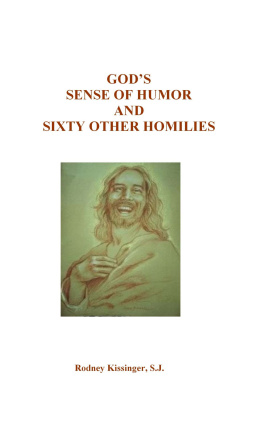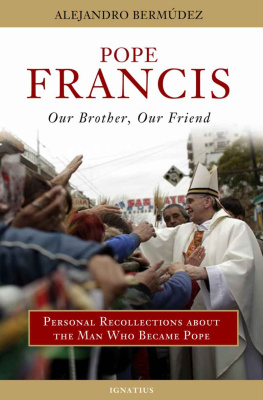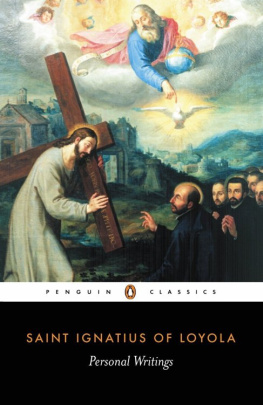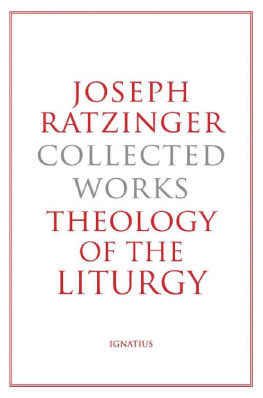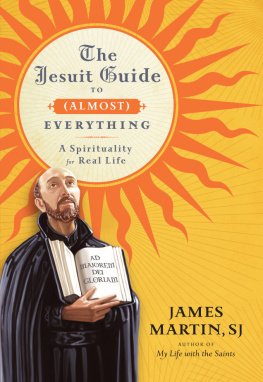Copyright 2014 Fr. Rodney Kissinger, S.J. All Rights reserved
GODS SENSE OF HUMOR
The Book of Genesis quotes God as saying, Let us make man in our own image. And so He did. And He saw that it was good, very good. Since that time man has been making God in his own image. And that is not good at all because most of these man-made images of God are caricatures.
We often picture God as a serious old man, burdened with the incredible task of managing this vast, complex universe and providing adequately for all of His creatures, especially for the fickle, fallible, unpredictable human beings. But God is not old. Neither is God young. It is the passing of time that makes one young and then old. God exists outside of time. God exists in eternity, in an eternal now. And God is not serious; at least, not in the sense of being burdened with a task that is too big for Him. Is it more difficult to manage the universe than to create it out of nothing?
And most of all God is not sad. God is perfectly and eternally happy, and enjoys a divine sense of humor. The sense of humor we have, if we have one, is but an imperfect participation in Gods sense of humor. And a sense of humor is the attribute of God that is most forgotten and most relevant for us today.
A sense of humor, of course, is a sense of the humorous. So what is humorous? The humorous is that which is unexpected, incongruous and preposterous. At the circus, for example, it is the incongruity of the clown with the baggy pants, bulbous nose, long shoes, and painted face that is humorous. At the movies, we laugh at the Three Stooges because they are always doing the unexpected, the incongruous and the preposterous.
A sense of humor then is simply a sense of truth, a sense of reality that enables us to discern the untrue, the unreal, the incongruous and the preposterous. God has a perfect sense of humor then because God is All-Truth and God is the really real, the source of all reality.
Creation is filled with the humor of God. Consider the giraffe, the kangaroo, the zebra, the ostrich, the hyena and the baboon. Could a serious, humorless old man even conceive of such creations? What about us? Man has been called an angelic animal. What an unexpected, incongruous and preposterous combination! Angels are perfectly at home, wherever they are. Animals are perfectly at home in this world. But we are not. We are like displaced persons. We have not here a lasting city. And we do not have it all together. We are a bundle of contradictions. The good we will we do not and the evil we will not that we do. We are proud as devils and act like jackasses.
The Bible which contains Gods most intimate revelation of Himself also gives eloquent testimony to Gods sense of humor. From Genesis to Revelation God is constantly doing the unexpected, the incongruous, the preposterous, doing impossible things with the most unlikely people. The very first chapter of Genesis contains what is perhaps the greatest proof of the Divine sense of humor....male and female he created them. (Gen. 1:27) Anyone who creates sex must have a great sense of humor. Nothing has made a bigger fool out of more people than sex.
Then there is Abraham and Sarah. Abraham, 99 years old, and his wife Sarah, 90 years old and barren, are promised that their descendents will be more numerous than the grains of sand on the seashore and the stars in the sky. On hearing this Sarah laughs. And God must have been laughing with her, because she does conceive and bears a son, whom they name Isaac, which in Hebrew means laughter. Years later, Isaacs younger son, Jacob, tricks his older brother Esau out of his birthright. Then Jacobs youngest and best loved son, Joseph, is sold into slavery by his brothers only to become the chief executive officer of Egypt. Then a mere youth, David, slays the giant Goliath with a slingshot.
But Gods sense of humor reaches its climax in the New Testament. What is more unexpected, incongruous and preposterous than the Gospels? The King of Kings is born in a stable and dies as a criminal on a cross. The first are last and the last are first. Those who lose their lives find it. You add by subtracting and multiply by dividing. The foolish confound the wise and the weak conquer the strong. The stone rejected by the builders becomes the cornerstone supporting all the rest.
The Bible seems to be telling us that the only reasonable response to God is faith and laughter. Believe and laugh. Yet I have seen many people read the Bible, very devoutly and prayerfully, but I have yet to see someone read the Bible and laugh. Or even smile.
Someone has said, God is a comedian playing before an audience that is afraid to laugh.
Gods sense of humor is most obvious in theology. Theology speaks glibly and eloquently about God and then says that God is incomprehensible. I remember the theology class about the Trinity. We spent one hour a day, five days a week for one semester studying the Trinity only to learn at the end that if we understood it, we didnt understand it, because it is unintelligible.
There is tragedy, of course, in the Bible as well as in human life. Sometimes there is very great tragedy, as in the world today. But there is also God; God who loves us, as only God can, not for our possessions, not for our achievements, but for ourselves. God loves us for ourselves, not as we could be or should be, but as we really are with all the physical warts, psychological quirks and spiritual infidelities. And God loves us with a love we cannot merit or ever be worthy of. And in the unconditional love of a Father God can laugh at the human foibles of His children. God can change human tragedy into divine comedy. All we can do is believe and laugh with God, our loving Father.
GRATITUDE
Ten were cleansed, were they not? Where are the other nine? Has none but this foreigner returned to give thanks to God? (Luke 17: 17-18) Ingratitude has been called the most unkindest cut of all. Yes, it is so easy to fall in love with the gift and forget all about the Giver; to admire a painting and never think of the painter; to enjoy music and never know the heart from which it came; to love ourselves and forget about the One from whom we came.
We like to think of ourselves as achievers but the basic fact of life is that we are primarily receivers not achievers. We all started out as zero, zip, nada. We did not ask to be. We did nothing to get here. My very existence is a gift of God. What am I anyway but a conglomeration of the gifts of God? What do I have that I have not received? Our most basic relationship with God therefore should be one of gratitude.
On another level I really did not start out as zero, zip, nada. In fact, I did not start out at all. I existed for all eternity. I existed in the mind of God as one of an infinite number of possible beings, beings that possibly could be. Out of this infinite number God freely chose to create me.
My parents did not want me. They did not know who I would be. But God knew exactly who I would be, and he wanted me. You have not chosen me, I have chosen you. So from all eternity my most basic relationship with God is one of gratitude. Lord, give me a grateful heart.
To help us to be thankful God gave us a memory so that we can remember and give thanks. The memory enables us to bring forth from the storeroom of the past the wonderful moments of success, love and happiness, so that we can re-live, re-enjoy them and be grateful.
Unfortunately, we use the memory more often to bring forth from the storeroom of the past the failures, fears and sorrows and to re-live and re-suffer them, and become discouraged. And what is even worse, we forget our roots and we lose our identity. Lord, give me a grateful heart.
To remember and give thanks; that is what the Bible is all about. The Bible is the written history of many of the wonderful gifts God has given us from the very creation of the world and the promise of even greater gifts in the future. In the beginning the memory of these gifts was handed on orally to each succeeding generation and then under the inspiration of the Holy Spirit written down so that all could remember and give thanks. Lord, give me a grateful heart.

